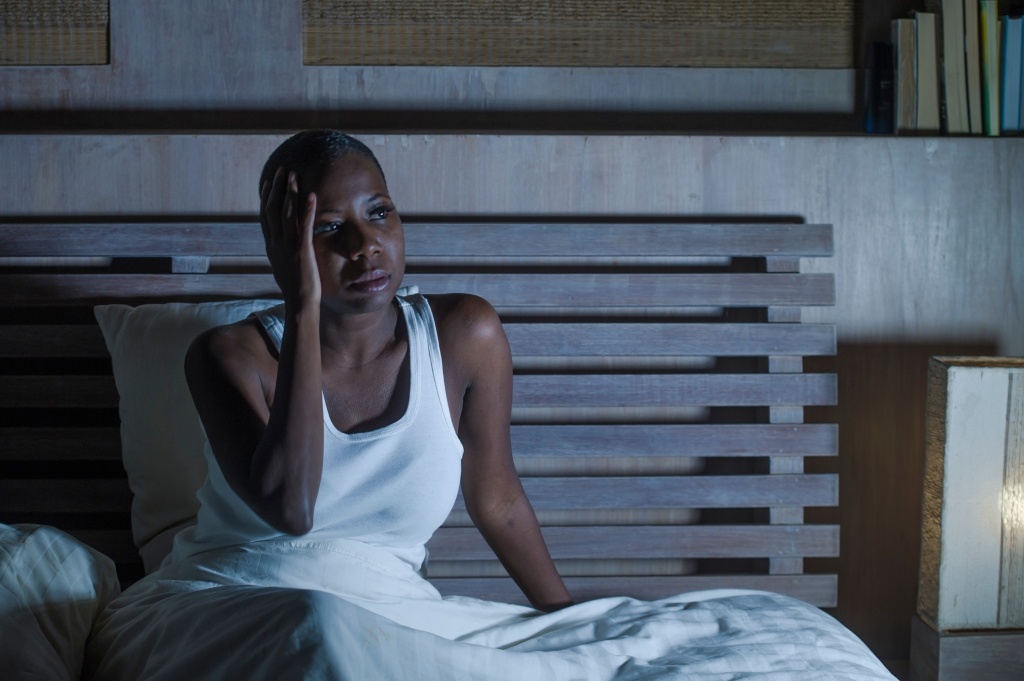Having Trouble Sleeping at Night? – Try These 5 Tips
 Are you having trouble sleeping at night?
Are you having trouble sleeping at night?
Insomnia plagues a large percentage of the population. There are many potential underlying causes. Ultimately, the best thing that you can do is to figure out the underlying cause and treat it.
For example, if depression is causing you to have trouble sleeping at night, then treating the depression will help resolve the sleep issues.
However, it can take time to figure out and treat the underlying issue. In the meantime, you really need to just get some sleep. After all, without proper sleep, you have trouble with everything from being productive at work to managing your emotions.
Luckily, there are many small things that you can do to improve sleep. Here are five key tips.
1. Screens Increase Trouble Sleeping at Night
Do you watch television before bed? Do you use your laptop while getting ready to fall asleep? How about your phone? Unfortunately, using any of these habitual gadgets increases the likelihood that you will have trouble sleeping at night.
If you want good rest, you need to turn them off. In fact, you should turn off all screens several hours before bed in order to get a good night’s sleep.
It isn’t easy to adjust to a screen-free evening, but it is well worth the effort.
2. Relaxing Before-Bed Activities
What will you do with those hours before bed if you aren’t using your devices? Actually, this is a great time to start implementing a bedtime routine that includes several soothing, quieting, calming activities.
Some great before-bed activities include:
- Read a book or print magazine.
- Enjoy a leisurely hobby such as knitting.
- Listen to guided meditation, chants, or prayers.
- Do light stretching and deep breathing.
- Take a candlelit bubble bath.
- Have a phone call with someone you love.
If you do these things regularly before bed, then the act of doing them will trigger better sleep.
3. Eat Right, Especially at Night
Everything that you put into your body affects it. Sometimes we don’t even realize it until we try changing our diet.
For example, you might think that your morning coffee doesn’t impact your sleep. However, if you cut it out, then you might discover that you sleep better at night without it.
Of course, what you eat right before bed will have the most impact. You are more likely to have trouble sleeping at night if you consume spicy meals, caffeine, and alcohol. As bedtime nears, try to eat less and eat simply.
4. Get Enough Physical Activity
You don’t want to do aerobic exercise right before bed. That will just increase your trouble sleeping at night. However, you do need to get enough exercise throughout the day.
Basically, you need to wear your body out so that it wants to sleep at night. Try to get at least 30 minutes of exercise every single day.
Keep in mind that bursts of mini-exercise routines work also. Research shows that ten minutes of exercise three times a day, for example, still benefits your physical health.
5. Track What Works for You
Keep a daily diary. This is the only way to figure out what works for you and what doesn’t when it comes to getting quality sleep.
Things to track include:
- What you ate and drank, including the day’s water consumption
- How much exercise you got and what type
- Any issues that impacted your emotions or stress levels
- What major activities you did during the day
- What time you woke up and went to bed
- Quality of sleep; rate it 1-5 each day and over time you can see patterns
Hopefully, these tips will help you to get some sleep. However, as aforementioned, you also want to treat the underlying cause of insomnia. The Center for Mental Wellness treats many issues that might affect sleep. Visit here to learn more about how we can help you.
